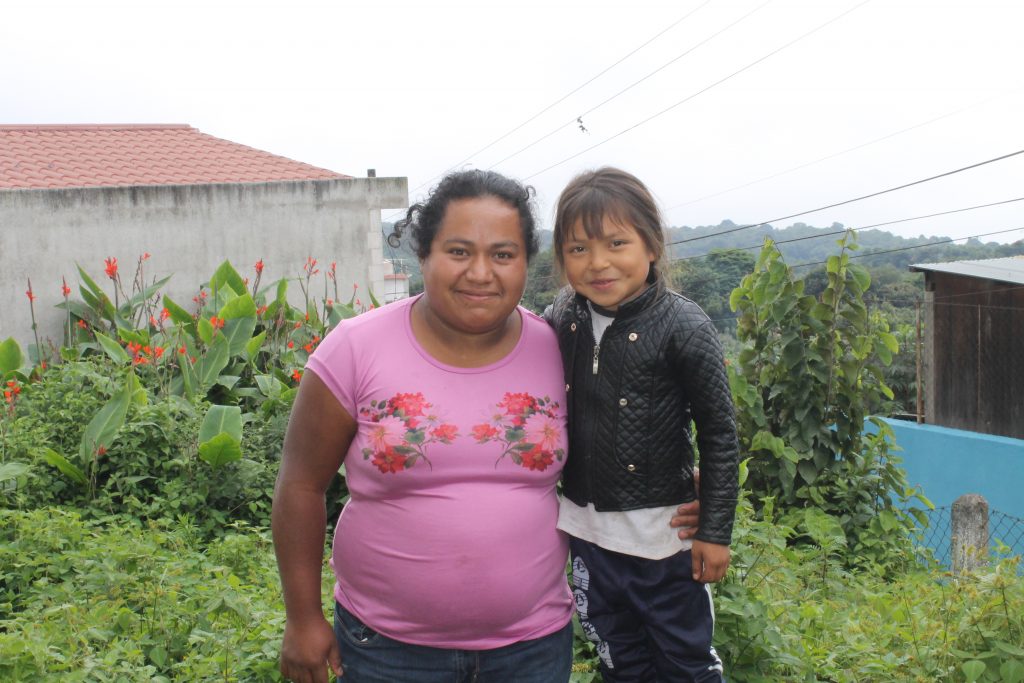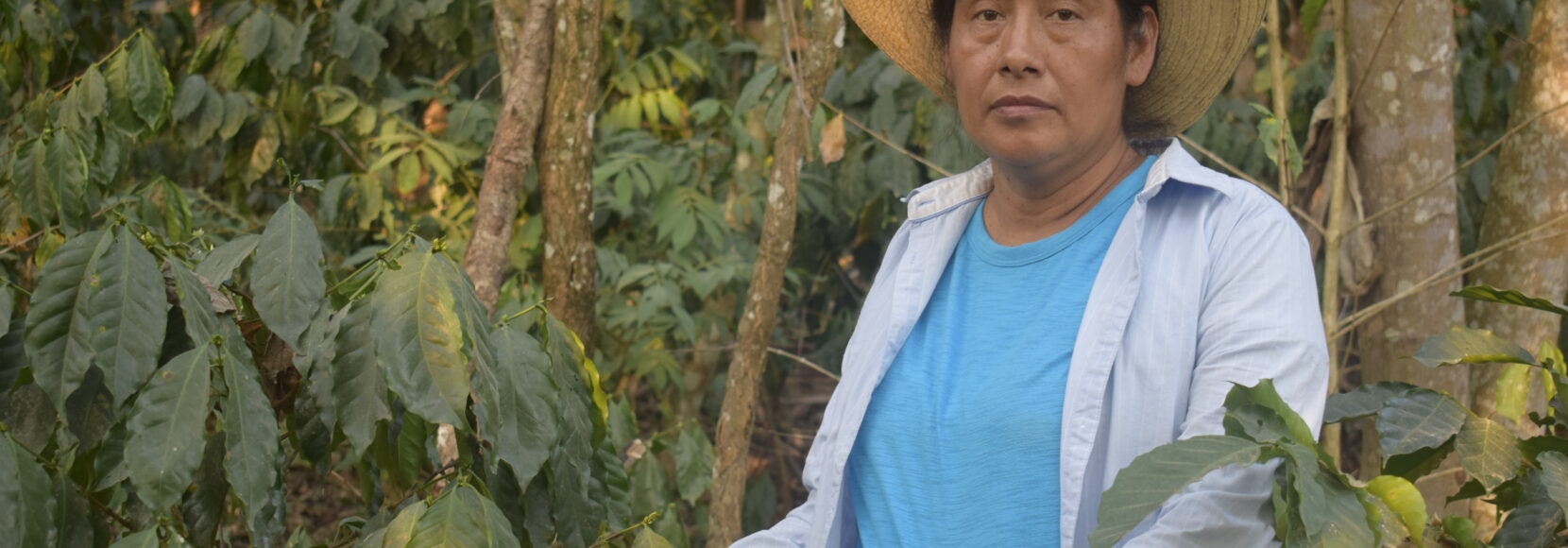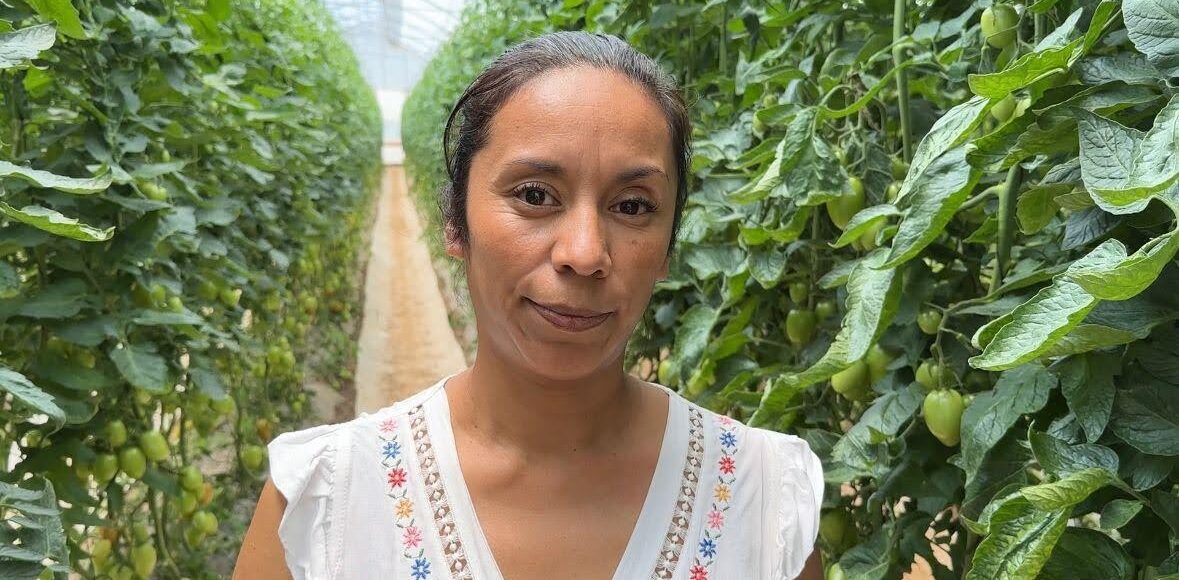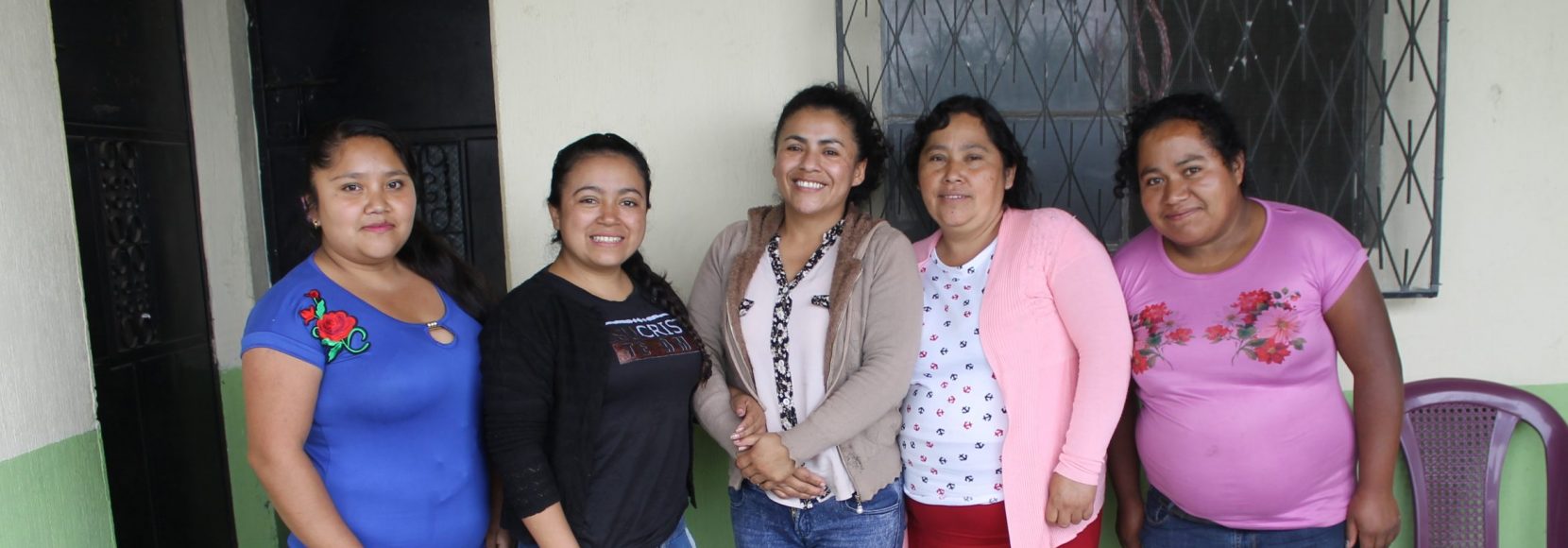
International Day of Rural Women: A Rural Woman Farmer in Guatemala Supports Her Children and Her Community
TechnoServe acknowledges women’s vital role in growing the world’s food, while grappling with significant other challenges and responsibilities. The story of Lesbia Ludia Juárez, a rural woman farmer, demonstrates the tremendous contributions and potential of rural women around the world.
Women around the world face significant discrimination when it comes to equal rights, land and livestock ownership, participation in decision-making, and access to resources such as education.
In fact, 43% of the agricultural labor force is made up of women, and in low-income countries, two in three women are employed in farming.
While tending crops and livestock, women also manage disproportionate caretaking and household responsibilities. According to UN Women, women worldwide do 2.5 times more unpaid household and care work than men.
This year for International Day of Rural Women (October 15), TechnoServe acknowledges women’s vital role in growing the world’s food, while grappling with significant other challenges and responsibilities. Today, we are spotlighting the story of Lesbia Ludia Juárez, to demonstrate the tremendous contributions and potential of rural women around the world.
“We felt desperate at times.”
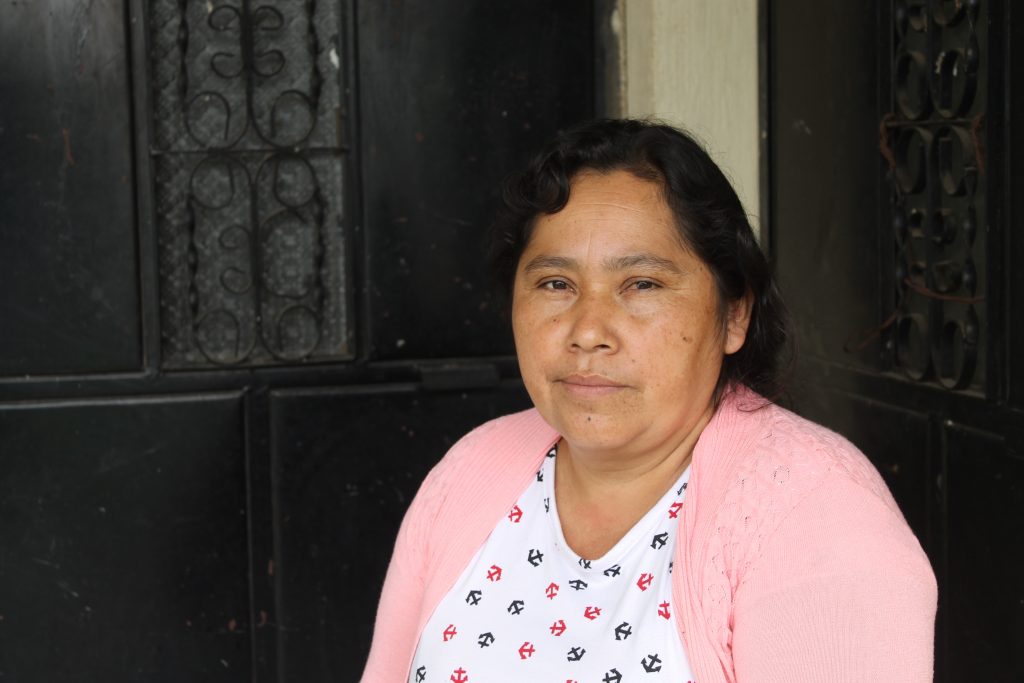
Lesbia Ludia Juárez makes her way to her family’s farm in Los Planes, a small village in Guatemala. The 45-year-old does this three times a week after waking up early, making breakfast for her three daughters, and cleaning the house.
As her daughters follow behind her, she checks the coffee plants, avocados, and other vegetables that are now providing her with a steady profit, ensuring a good future for her and her daughters.
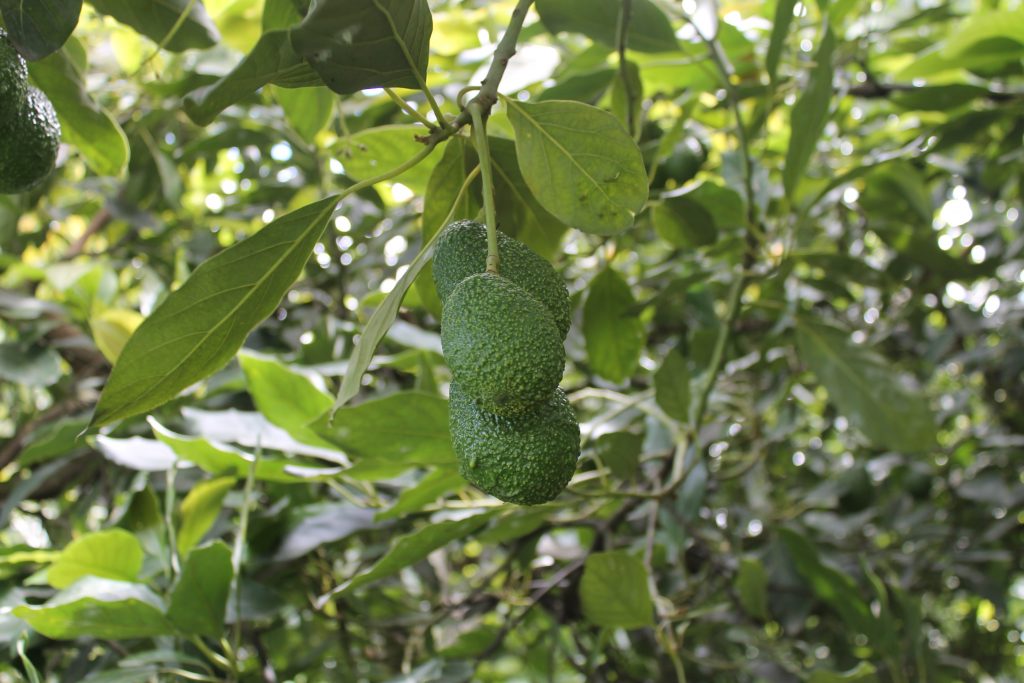
But before applying new farming practices learned from TechnoServe, worry and anxiety were ever-present. “We felt desperate at times, thinking about how our daughters were going to grow up and do better in life if they didn’t have opportunities,” says Lesbia.
In the past, she says, her family faced harsh challenges. As they lived on a low income, a lack of medical care and poor nutrition meant there were limited opportunities to succeed. The future, in Lesbia’s words, was “complicated.” With a husband who had migrated to the United States in 2004, the weight of improving the life of the next generation of her family largely rested on her shoulders.
“If we didn’t have a better income, how would we prevent our children from suffering and repeating history?” she says.
The Challenges of Rural Women in Guatemala and Around the World
Currently, women like Lesbia who live in rural areas manage difficult circumstances everyday. While 64% of women work in agriculture in low-income countries, they have little or no social protection or labor rights. This results in a lower standard of living, poorer wages and health, limited access to social services, and restricted upward mobility. Around 30% of rural women give birth without a skilled health worker present, compared to just 10% of urban women. And fewer than 15% of agricultural landholders are women.
“From growing and tending crops to harvesting the final product, women’s labor is not valued, even though they help feed their families and generate more work opportunities in their communities,” says Priscilla Villela Cuevas, a Digital Communication Specialist for TechnoServe Guatemala and Nicaragua. “Often, they do this while also managing their caretaking responsibilities at home.”
In Guatemala, women’s wages represent 78% of the men’s average wages. According to Guatemala’s National Statistics Institute (INE), the gender wage gap actually increased in 2021, with women’s incomes falling by 21% And the gaps widen when accounting for indigenous women or those in rural areas. With a population of nearly 16 million people, more than half of the population in Guatemala lives in rural areas. Lesbia is one of them–and as a woman whose husband was abroad, she faced especially steep challenges in supporting her young family.
How a Woman Farmer in Guatemala Provided for Her Family
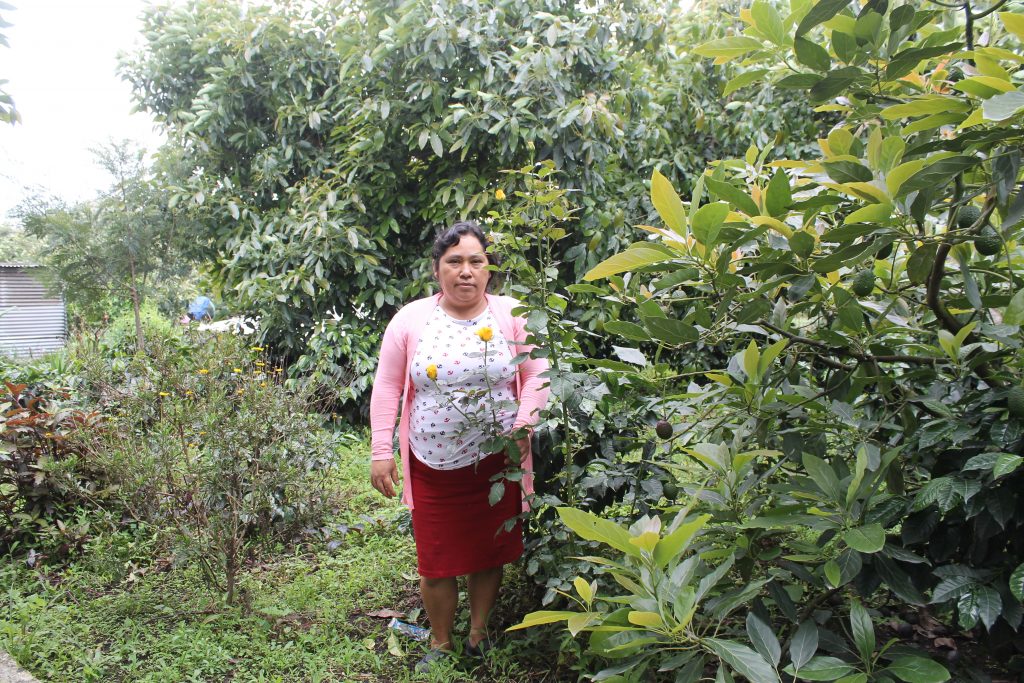
I was the only woman interested in learning, and although they looked at me strangely, I did not give up. Over time, I earned the respect of men.
Lesbia Ludia Juárez
Five years ago, Lesbia joined a farmer producer organization to help sell her crops. “I felt the need to join because I didn’t know what to do,” says Lesbia. “I was the only woman interested in learning, and although they looked at me strangely, I did not give up. Over time, I earned the respect of men.”
Just a year after she joined, TechnoServe partnered with this farmer producer organization. By working with farmers to improve their production and integrate them into more inclusive and profitable market systems, the Smallholder Market Access Program in Central America, funded by the Walmart Foundation, aimed to increase smallholder incomes by at least 20%.
To date, the program has:
- Helped 82% of participating farmers adopt regenerative agricultural practices
- Meant that 5,196 farmers have completed the agronomy training program
- Supported farmers to improve their yields by an average of 11%
- Strengthened operations at 22 farmer producer organizations
- Facilitated sales from 3,714 farmers to commercial exporters
- Boosted farmer incomes by an average of $422, representing an increase of 17%
“The women were normally dedicated to taking care of the children and maintaining the house,” says Lesbia. “We rarely helped out on the farm. But since the arrival of TechnoServe, we have been more involved. Not only with labor, but also in making decisions about how to manage the budget.”
Since starting the program, TechnoServe, with grant funding from the Walmart Foundation, has announced that a second phase of the Smallholder Market Access Program will be launched to help even more farmers like Lesbia provide for the next generation.
“Everything has improved, little by little.”
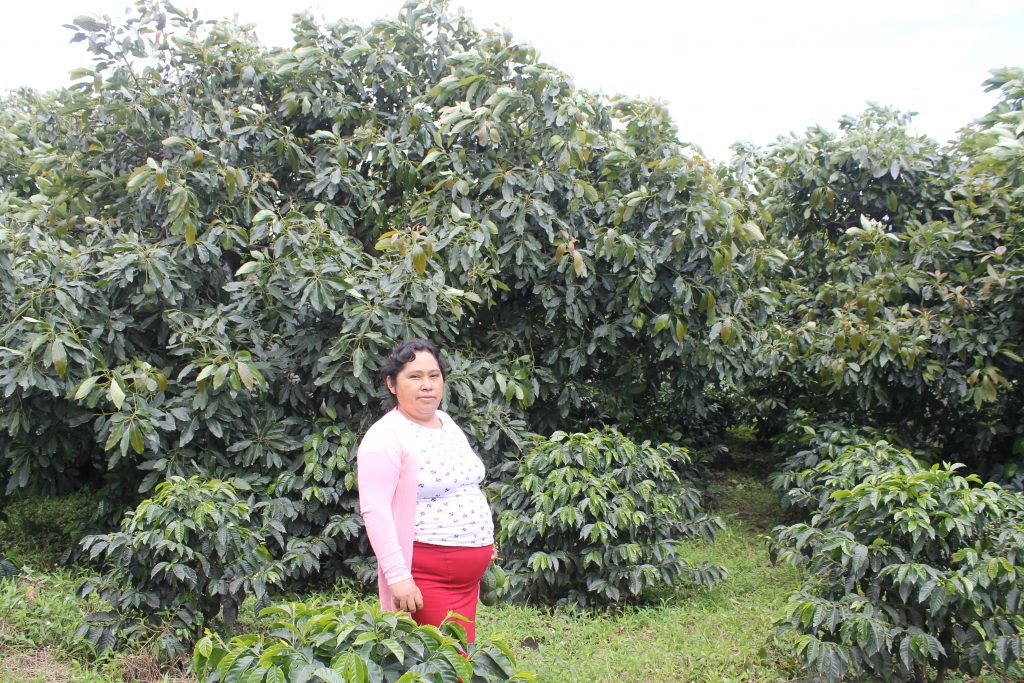
When Lesbia’s husband still managed their crops, they earned about $4 per day. After working with TechnoServe, their farm makes nearly $40 per day now.
“I feel that everything has improved, little by little,” says Lesbia. “We believe that it will improve the future of new generations through agriculture. We have access to better food and health services. I bought more land, better supplies, and opened my own basic necessities store.”
Because of the opportunity that Lesbia was given, she’s proud that she can give opportunities to other women in her community. Anida Girón is one of these women. She takes on jobs on Lesbia’s farm and uses her earnings to buy farming supplies for her husband’s land.
“We want to learn and change the future for new generations,” says Anida. “In order to achieve that, children need to go to school, eat better, and have access to education.”
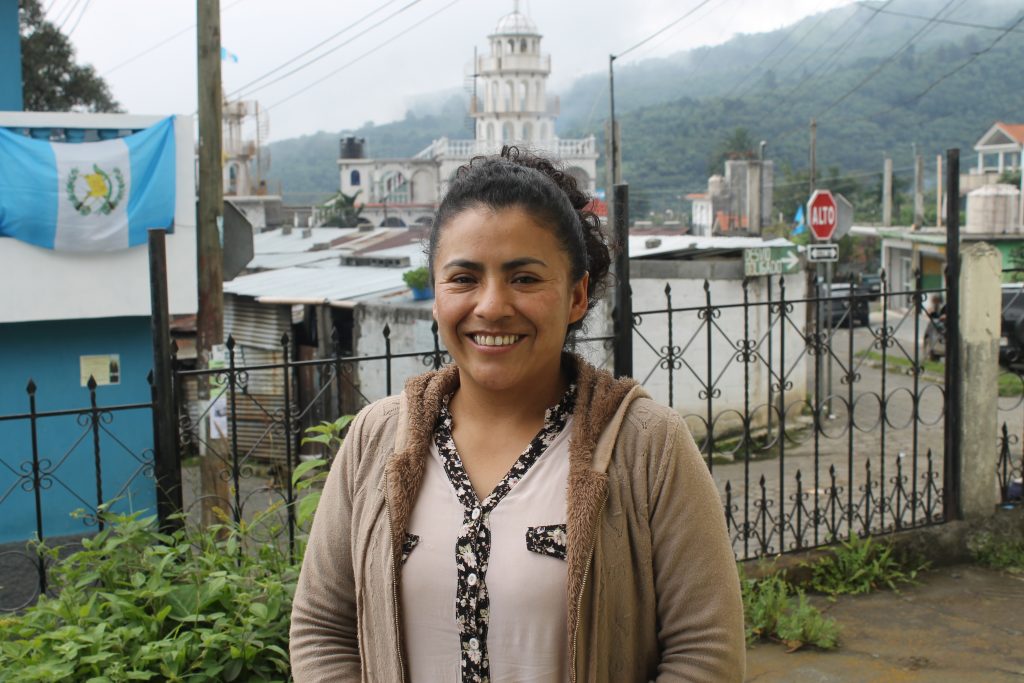
Lesbia says she will continue to give women in her community the job opportunities they need to earn more so they can give to their families as she has. “Since my daughters were little, I knew that I had to do everything in my power to get them ahead,” she says. “My husband’s departure was difficult, but that didn’t stop me from working hard. I know that I have given them a good example, and their quality of life is better. Now we work as a team to move the farm forward.”
